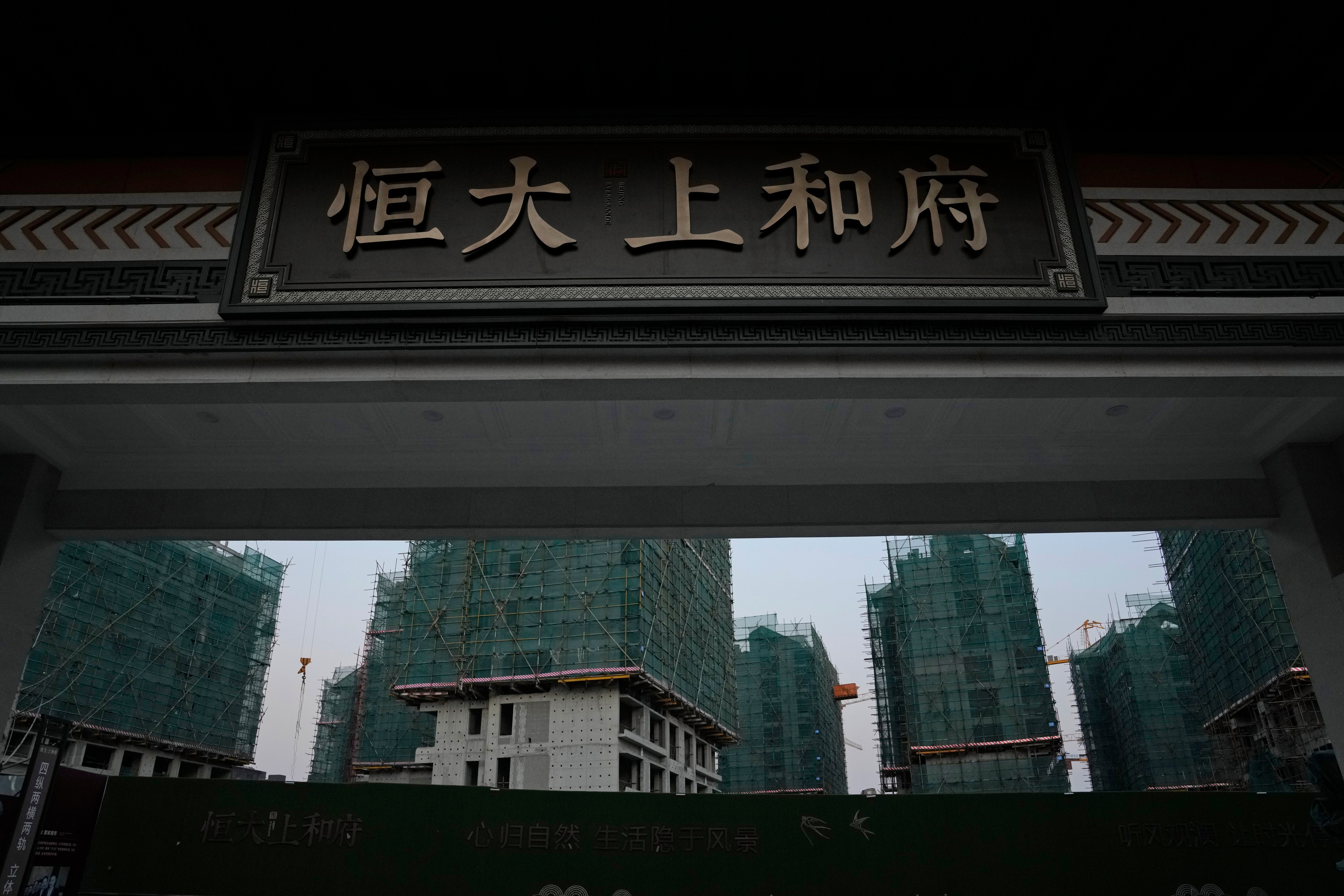Troubled Chinese developer told to demolish resort
Evergrande Group has been ordered to demolish a 39-building resort complex in a further blow to the finances of the debt-ridden property developer.

Your support helps us to tell the story
From reproductive rights to climate change to Big Tech, The Independent is on the ground when the story is developing. Whether it's investigating the financials of Elon Musk's pro-Trump PAC or producing our latest documentary, 'The A Word', which shines a light on the American women fighting for reproductive rights, we know how important it is to parse out the facts from the messaging.
At such a critical moment in US history, we need reporters on the ground. Your donation allows us to keep sending journalists to speak to both sides of the story.
The Independent is trusted by Americans across the entire political spectrum. And unlike many other quality news outlets, we choose not to lock Americans out of our reporting and analysis with paywalls. We believe quality journalism should be available to everyone, paid for by those who can afford it.
Your support makes all the difference.A troubled Chinese real estate developer that is struggling with 310 billion US dollars (£229 billion) in debt has announced that it has been ordered to demolish a 39-building resort complex, in a new blow to its finances.
Evergrande Group gave no explanation, but news reports said the government of Danzhou, a city on the southern island province of Hainan found that the complex was improperly built and violated urban planning law.
Evergrande’s struggle to comply with tighter official restrictions on the use of borrowed money by China’s real estate industry has prompted fears of a possible default and financial crisis. Chinese regulators have tried to reassure investors that any potential impact on financial markets can be contained.
Economists say Beijing can keep Chinese lending markets functioning normally in the event of an Evergrande default, which looks increasingly likely. However, they say Chinese leaders want to avoid sending the wrong signal by arranging a bail-out at a time when they are trying to force companies to reduce surging debt levels.
Evergrande asked on Monday for trading of its shares in Hong Kong to be suspended. Trading resumed following Tuesday’s announcement, gaining 7.6%.
The company gave no indication of the possible loss from the demolition of the buildings on Ocean Flower Island. It said other buildings on the island were not affected by the order.
Evergrande, the global real estate industry’s most-heavily-indebted developer, warned last month it might run out of cash to keep up with debt payments and other obligations.
The company says it has 2.3 trillion yuan (£258 billion) in assets and 2 trillion yuan (£229 billion) in debt, but it has struggled to sell assets fast enough to keep up payments to bondholders. Construction of some projects was temporarily suspended after contractors complained they were not being paid.
Tuesday’s announcement said buyers in 2021 had signed contracts to purchase property worth a total of 442 billion yuan (£52 billion).
Beijing tightened restrictions on developers last year in a campaign to rein in surging corporate debt, which is seen as a threat to economic stability. The ruling Communist Party has made reducing financial risk a priority since 2018.
The Danzhou government’s order said Evergrande’s project violated a national urban planning law. It said the government will organise demolition if the company fails to act.
The Hainan government ordered an investigation last year of Ocean Flower Island, a complex of hotels, an amusement park and other facilities, according to news reports. They said some building permissions were revoked and fines of 215 million yuan (£25 million) were imposed for planning and construction violations.